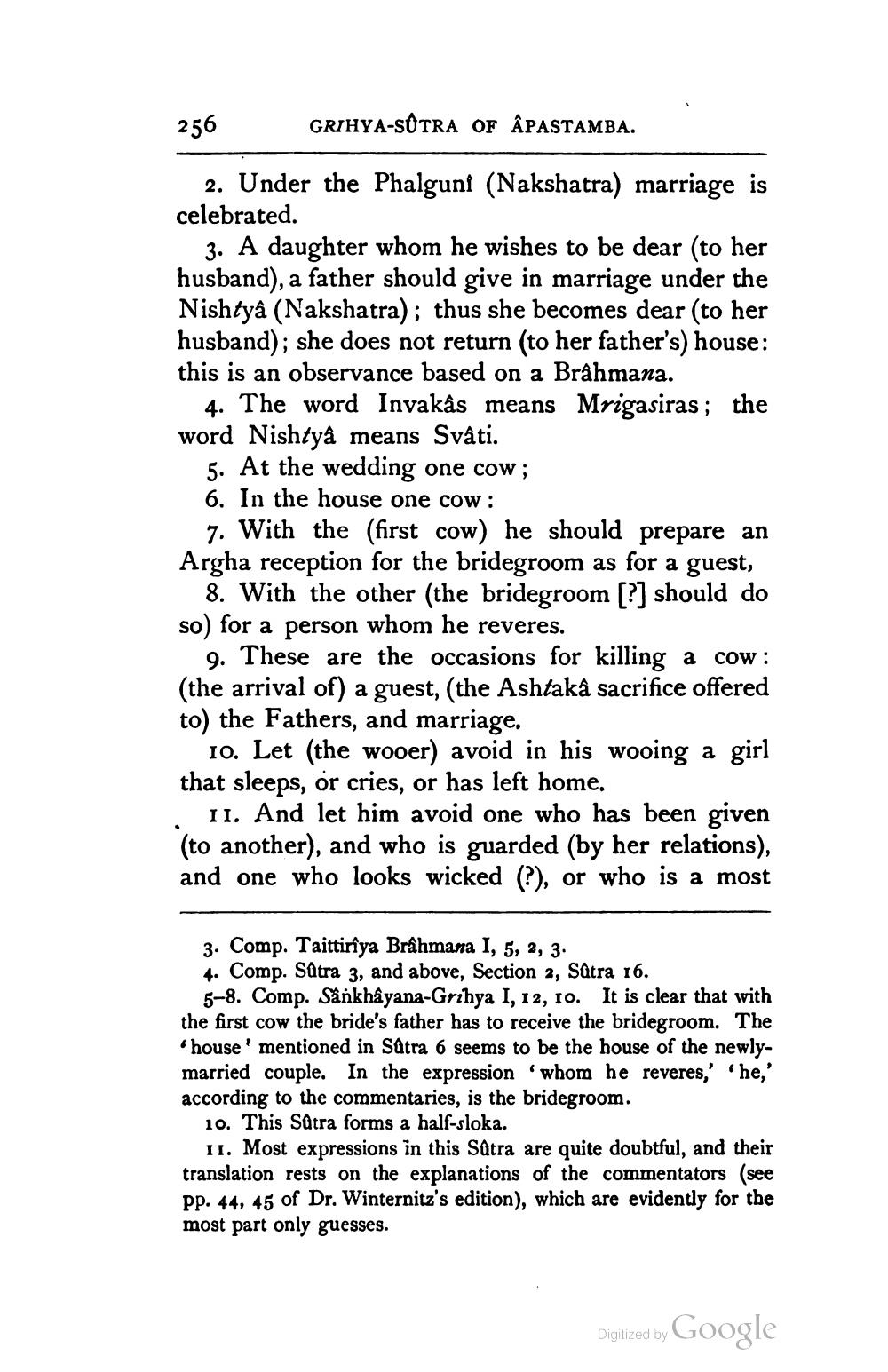________________
256
GRIHYA-SOTRA OF ÂPASTAMBA.
2. Under the Phalgunf (Nakshatra) marriage is celebrated.
3. A daughter whom he wishes to be dear (to her husband), a father should give in marriage under the Nishtyâ (Nakshatra); thus she becomes dear (to her husband); she does not return (to her father's) house: this is an observance based on a Brâhmana.
4. The word Invakås means Mrigasiras; the word Nishtyâ means Svati.
5. At the wedding one cow; 6. In the house one cow :
7. With the (first cow) he should prepare an Argha reception for the bridegroom as for a guest,
8. With the other (the bridegroom (?) should do so) for a person whom he reveres.
9. These are the occasions for killing a cow : (the arrival of) a guest, (the Ashtakâ sacrifice offered to) the Fathers, and marriage.
10. Let (the wooer) avoid in his wooing a girl that sleeps, or cries, or has left home.
11. And let him avoid one who has been given (to another), and who is guarded (by her relations), and one who looks wicked (?), or who is a most
3. Comp. Taittirîya Brâhmana I, 5, 2, 3 4. Comp. Sätra 3, and above, Section 2, Sätra 16.
5-8. Comp. Sänkhayana-Grihya I, 12, 10. It is clear that with the first cow the bride's father has to receive the bridegroom. The
house' mentioned in Sätra 6 seems to be the house of the newlymarried couple. In the expression whom he reveres,' 'he,' according to the commentaries, is the bridegroom.
10. This Satra forms a half-sloka.
II. Most expressions in this Satra are quite doubtful, and their translation rests on the explanations of the commentators (see pp. 44, 45 of Dr. Winternitz's edition), which are evidently for the most part only guesses.
Digilized by Google




